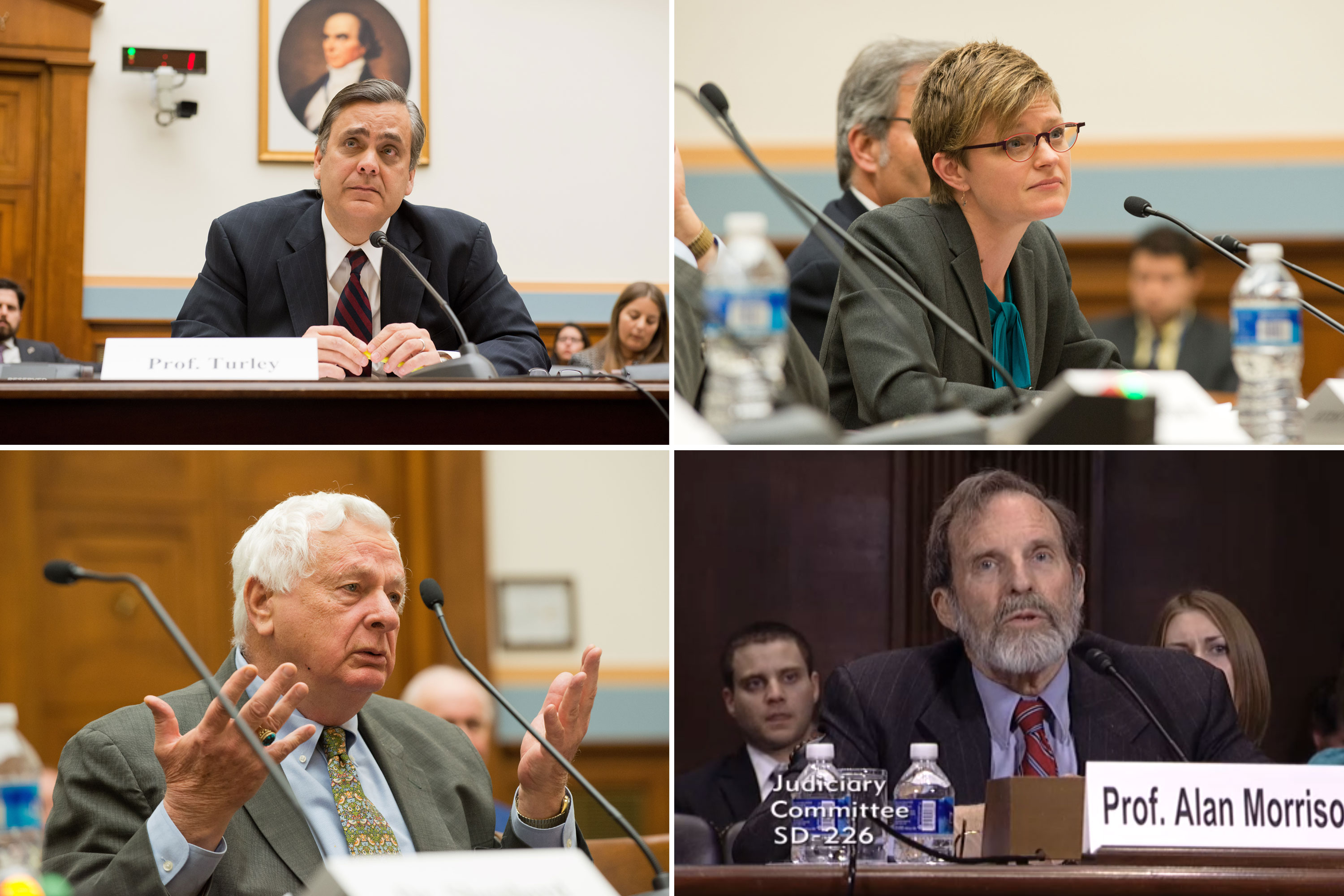GW Law faculty members have long held a commitment to public service. This was especially evident in March when four faculty members lent their expertise to Congress in the same week.
In one hearing, Emily Hammond, Associate Dean for Public Engagement and Professor of Law; Richard J. Pierce, Jr., Lyle T. Alverson Professor of Law; and Jonathan Turley, J.B. and Maurice C. Shapiro Professor of Public Interest Law testified about the Chevron Doctrine before the House Judiciary Committee Subcommittee on Regulatory Reform, Commercial, and Antitrust Law. The "Chevron Doctrine" comes from the landmark Supreme Court case Chevron U.S.A., Inc. v. Natural Resources Defense Council, Inc., which set forth the legal test for determining whether to grant deference to a government agency's interpretation of a statute it administers. Accordingly, the central question of the hearing was how much leeway bureaucrats should have in interpreting statutes passed by Congress.
In his testimony, Professor Turley viewed the issue from a constitutional law perspective and stated that the Chevron doctrine has altered the balance of power within the federal system. Professors Pierce and Hammond both wrote that they did not think a legislative fix by Congress would be likely to improve the current system.
Notably, GW Law faculty members comprised half of the witness list, which spurred Professor Turley to remark, "The panel reaffirms what I have always maintained: that there really is no need for Congress to go outside George Washington for all of its legal needs. Indeed, we are just short of a faculty quorum today."
The next day Alan B. Morrison, Lerner Family Associate Dean for Public Interest and Public Service Law, appeared before the Senate Judiciary Committee about a potential Constitutional amendment that would require the U.S. to maintain a balanced budget. Associate Dean Morrison argued that Congress and the President are unlikely to produce such a budget and then questioned how the mandate would be enforced.


